Building Psychiatry's Future...
Last month about 400 APA members gathered in the nation's capital to participate in APA's fall component meetings. It is at these meetings that much of the foundation is laid for addressing issues and planning initiatives that are important to psychiatrists and their patients. While this work is ongoing throughout the year, the fall meetings give APA members the opportunity to meet other psychiatrists who are volunteering their time and service to their profession and to engage in cross-pollination of ideas.
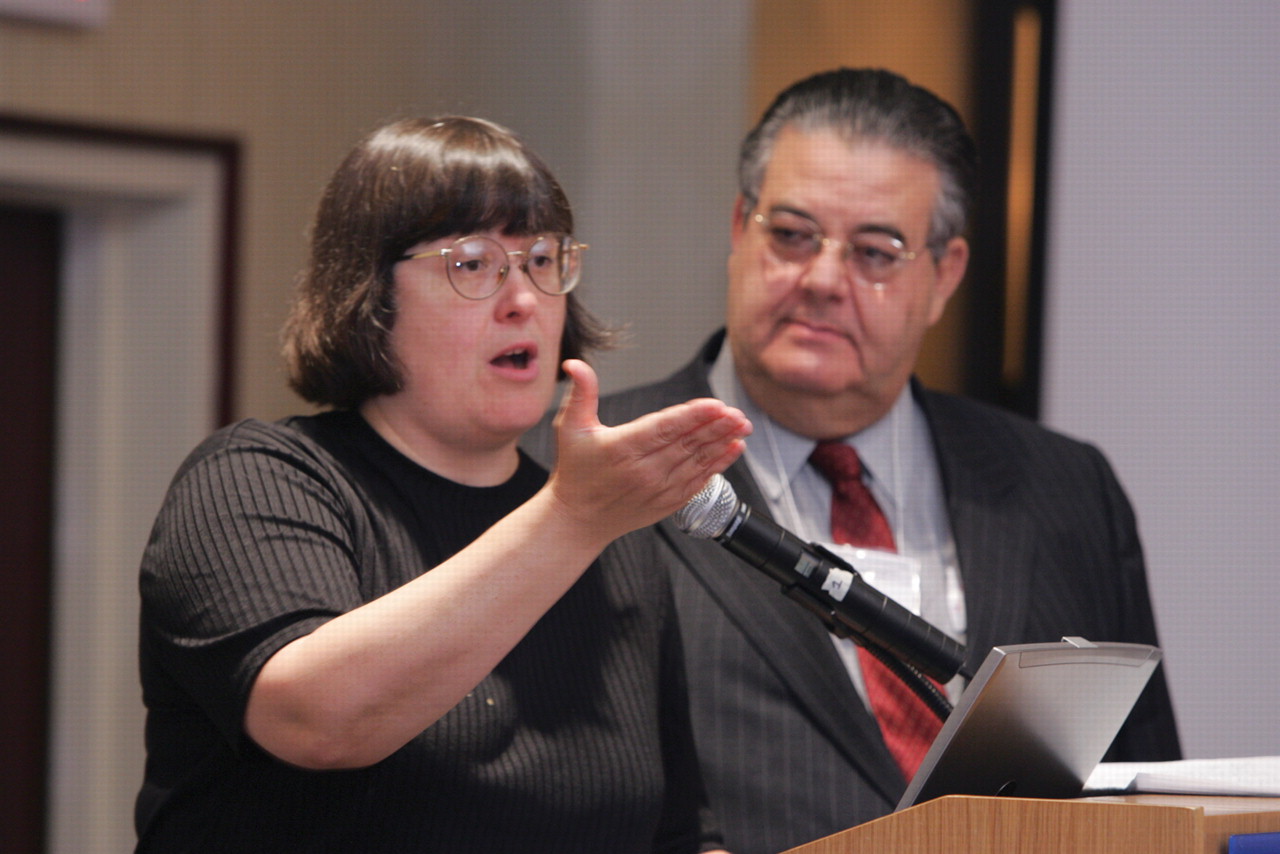
APA President Pedro Ruiz, M.D., welcomes APA members to the plenary session of the fall component meetings.
Photo: David Hathcox

Suzanne Vogel-Scibilia, M.D., president of the National Alliance on Mental Illness (NAMI), tells APA members last month in Washington, D.C., that APA and NAMI should collaborate more closely on such efforts as seeking funding to implement recommendations of the New Freedom Commission on Mental Health. At right is APA President Pedro Ruiz, M.D. (see pages Original article: 2 and 13).
David Hathcox
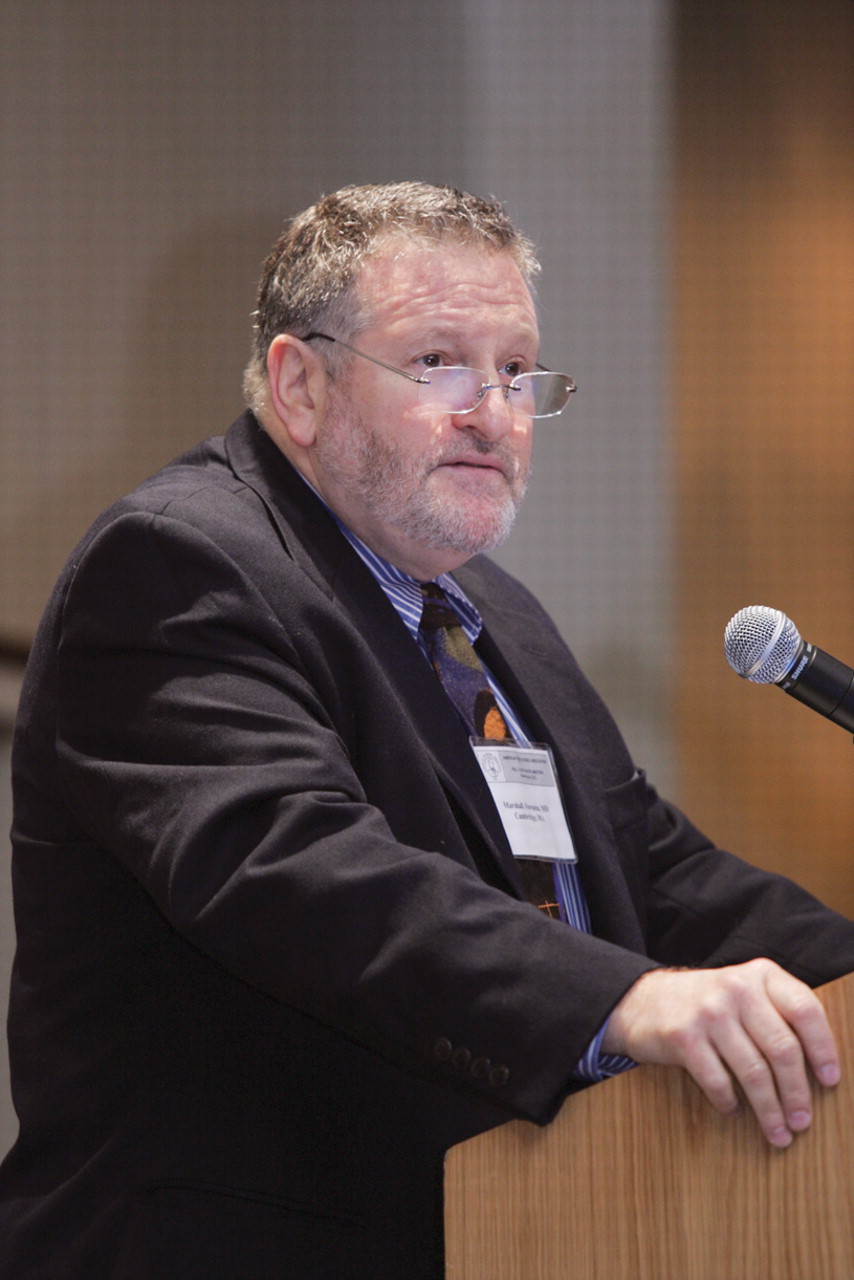
Photo: David Hathcox
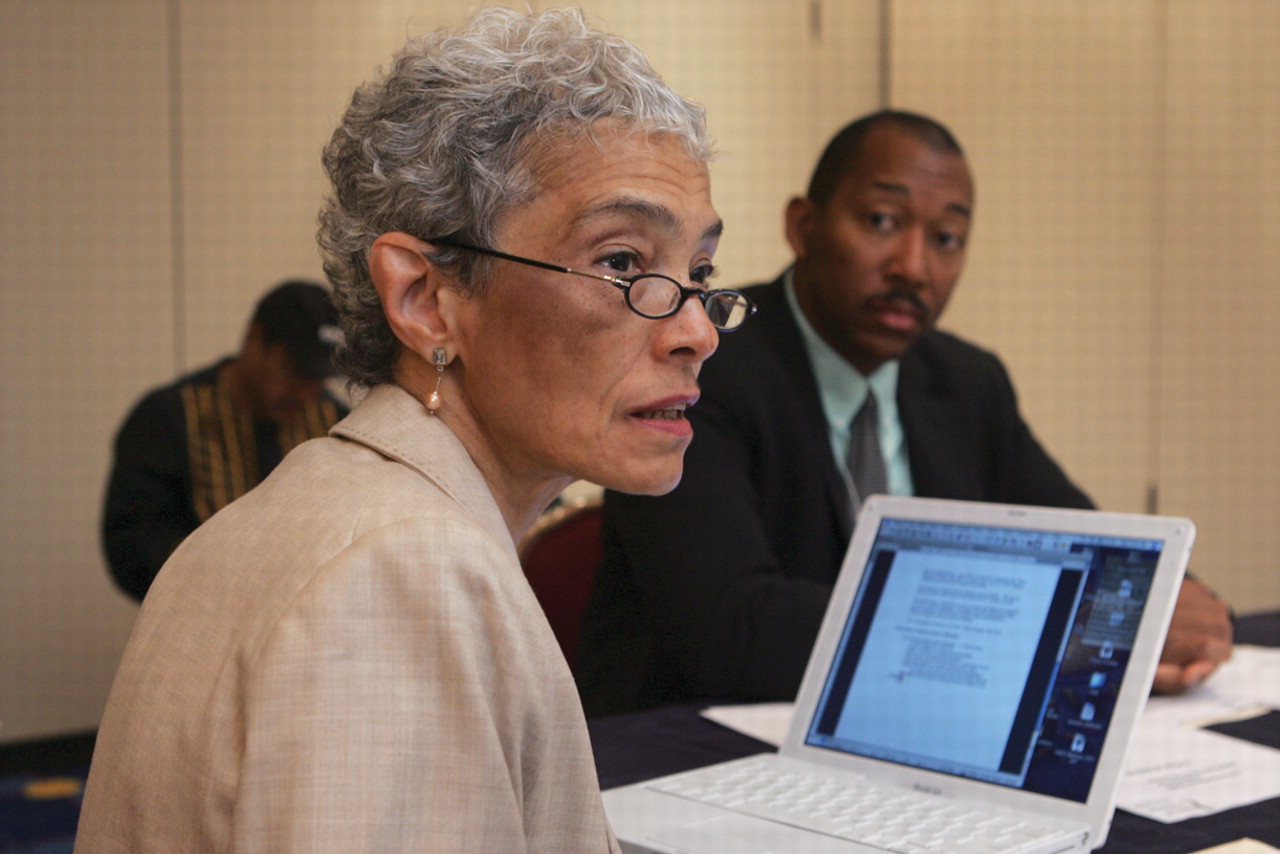
Marshall Forstein, M.D., talks about “AIDS at 25” at the plenary session. He chaired APA's Commission on AIDS from 1992 to 2004.
Photo: David Hathcox
Meeting participants attended a plenary session led by APA President Pedro Ruiz, M.D. (see Original article: page 2). The overarching theme of the presentations was the importance of psychiatrists' becoming involved in the political process—that is, meeting with legislators and candidates for office at both the state and national levels to educate them about mental health issues, as well as joining and contributing to APA's political action committee, APAPAC (see Original article: page 3).
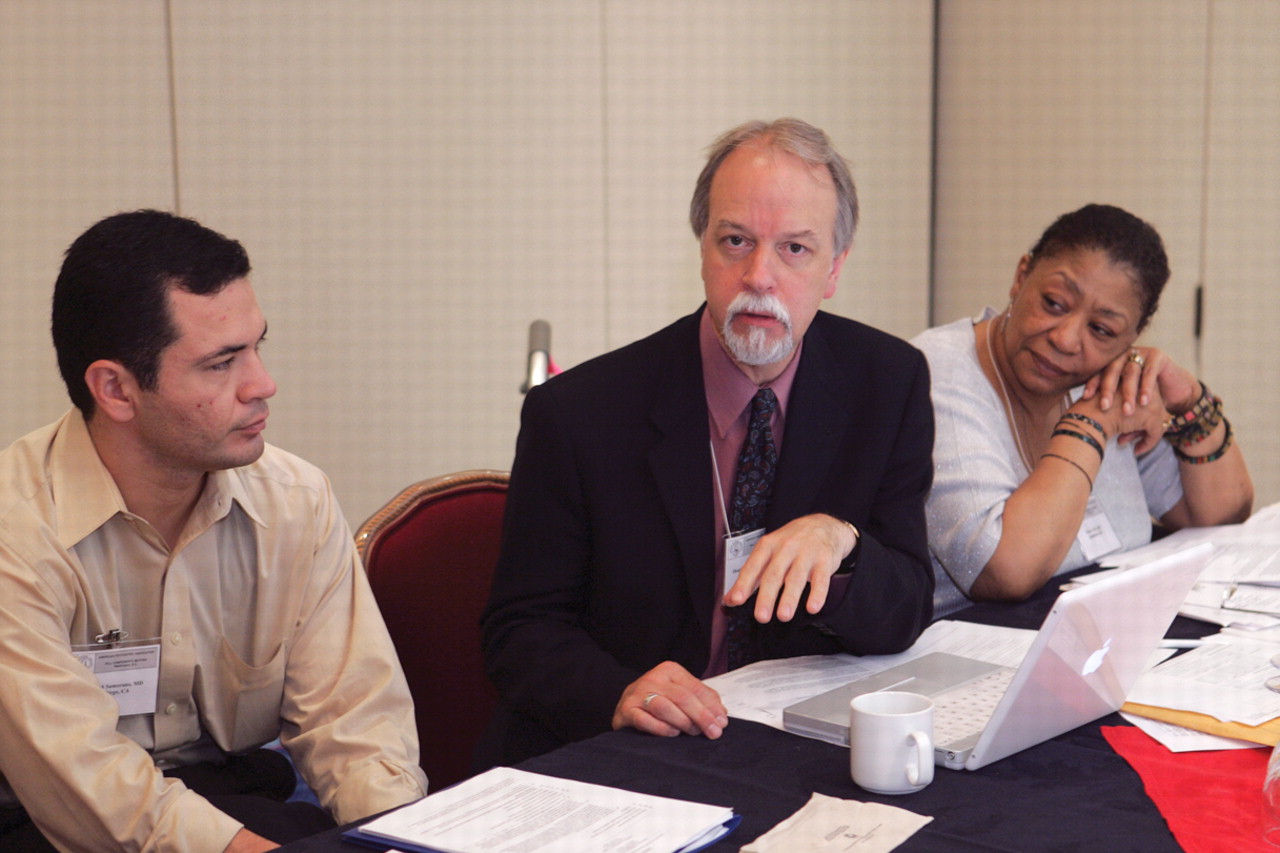
Sandra Walker, M.D., makes a point at the meeting of the Committee of Black Psychiatrists as Rahn Bailey, M.D., looks on.
Photo: David Hathcox

Hunter McQuistion, M.D. (center), discusses strategies for reducing the use of seclusion and restraint at the meeting of the Council on Social Issues and Public Psychiatry. He is flanked by Rogelio Samorano, M.D., an APA/AstraZeneca fellow, and Gloria Pitts, D.O.
Photo: David Hathcox

From left: Anna Gross, M.D., Molly McVoy, M.D., and Paul O'leary, M.D., confer at the Committee of Residents and Fellows meeting.
Photo: David Hathcox
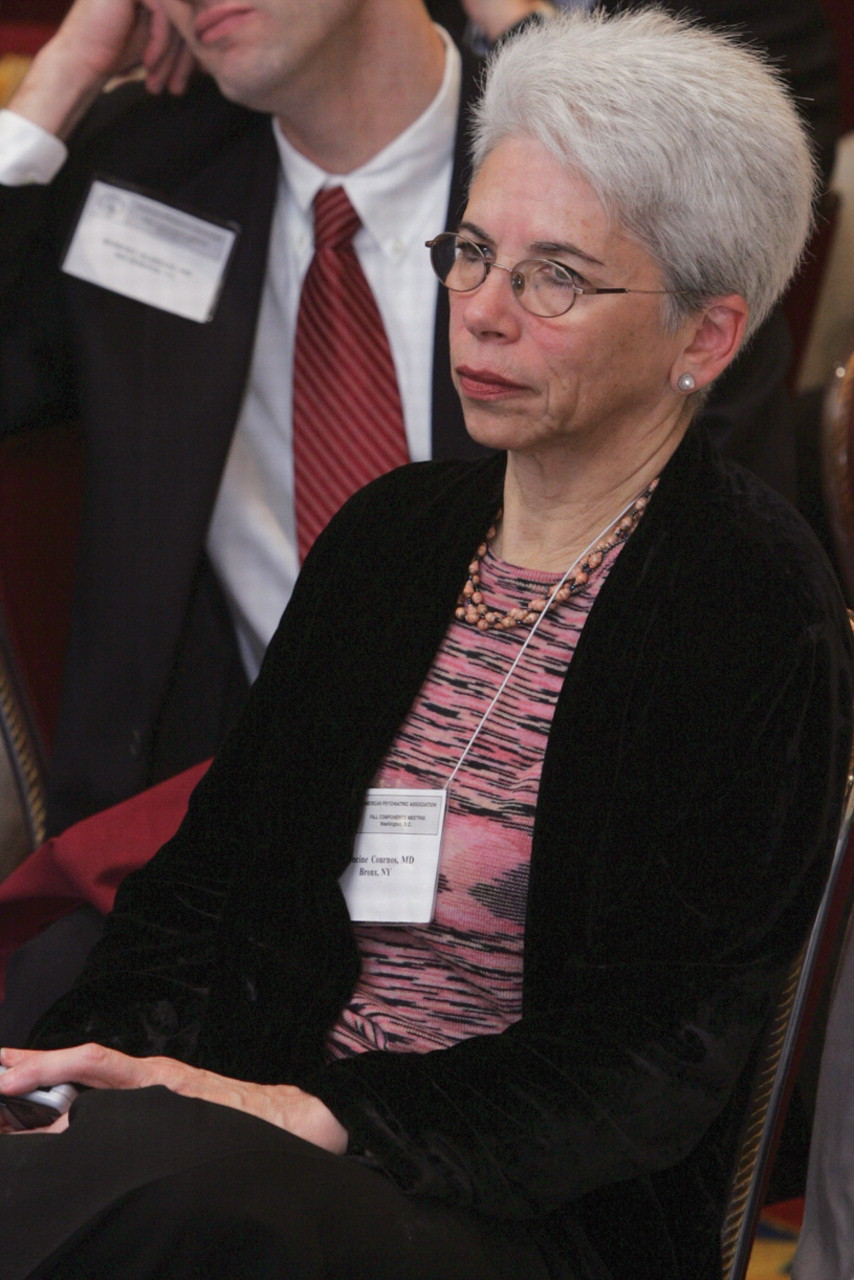
Francine Cournos, M.D., listens to Suzanne Vogel-Scibilia, M.D., president of the National Alliance on Mental Illness, at the plenary session.
Photo: David Hathcox
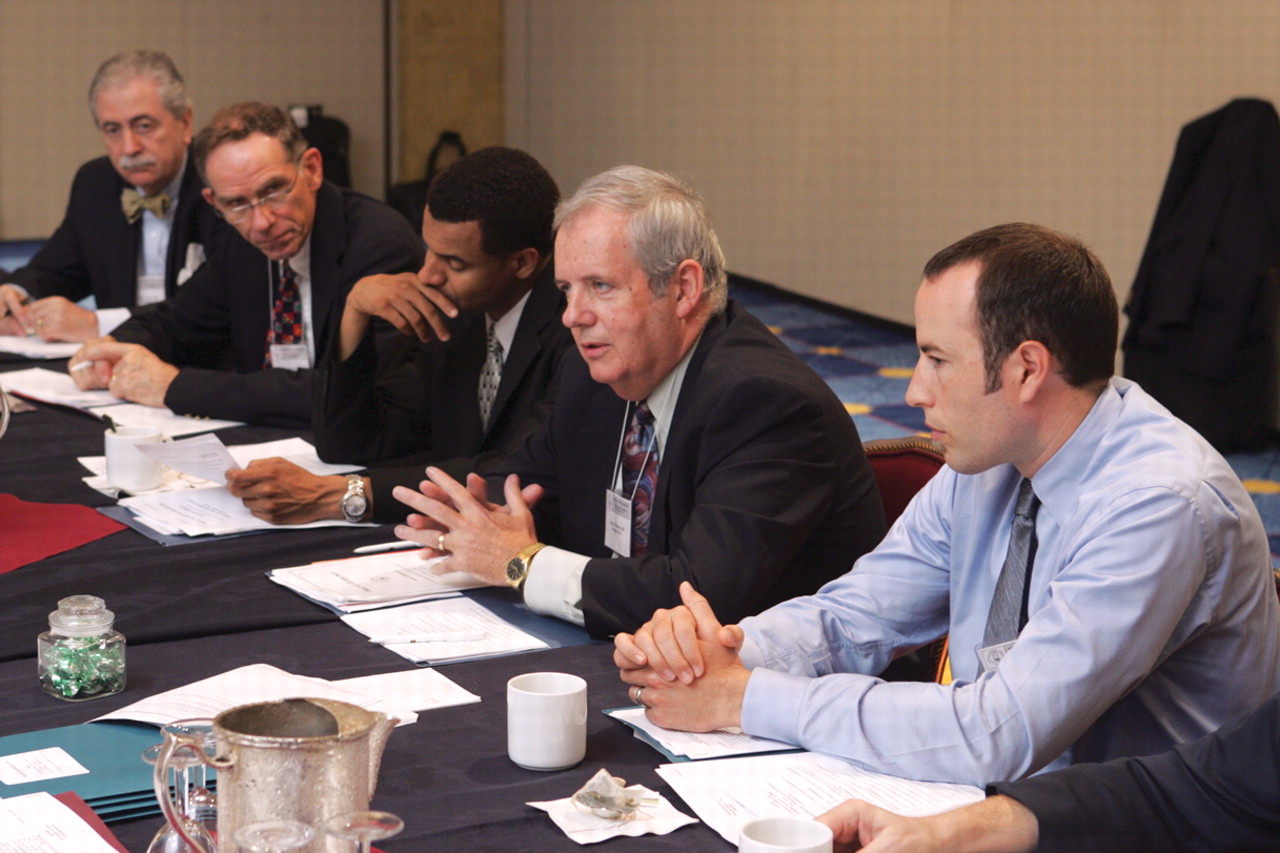
John McIntrye, M.D., addresses the Council on Quality Care. From left are Eliot Sorel, M.D., Al Herzog, M.D., Daniel Mamah, M.D., and Itai Danovitch, M.D.
Photo: David Hathcox



